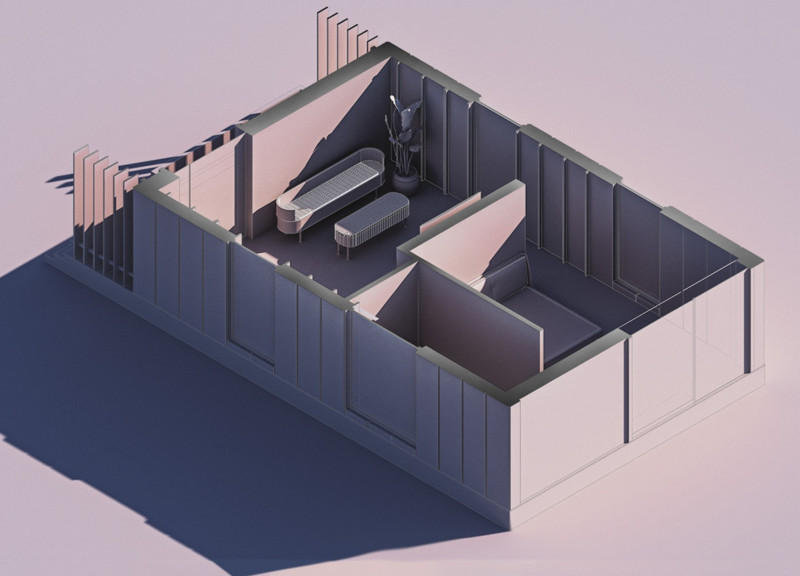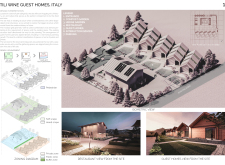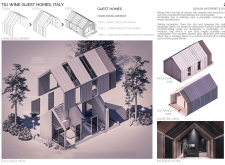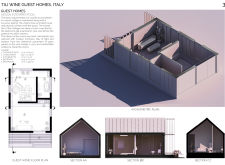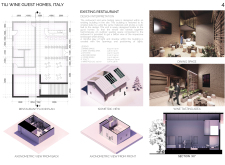5 key facts about this project
At its core, Tili Wine Guest Homes represents a commitment to sustainability and the preservation of cultural heritage. The project is designed to cater to guests seeking tranquility and a deeper understanding of the region’s wine culture. The overall function of the project extends beyond mere accommodation; it becomes a venue for social interaction, culinary experiences, and educational engagements related to viticulture. The architects have effectively leveraged the spatial arrangement to foster community interaction while ensuring privacy for the guests.
The guest homes are characterized by a contemporary aesthetic that harmonizes with traditional Italian architecture. Each home exhibits a thoughtful composition of materials including wooden planks, glass roof panels, and limestone, which collectively evoke a sense of warmth and belonging. The design facilitates a seamless connection between indoor and outdoor spaces, allowing guests to savor views of the surrounding vineyards and nature from within their accommodations. This intentional focus on natural light and spatial flow enhances the overall experience, encouraging relaxation and engagement with the landscape.
An essential feature of the project is its division into distinct zones that cater specifically to different experiences. Private areas are designed as serene retreats, while public spaces encourage social gatherings and shared experiences among guests. The restaurant and wine-tasting areas serve as focal points for culinary exploration, offering a menu that highlights local ingredients and wine pairings that reflect the region's heritage. The architects have incorporated large windows and open layouts to maximize natural light and provide captivating views, ensuring that the dining experience is as memorable as the accommodations themselves.
Sustainable design plays a pivotal role in the Tili Wine Guest Homes project. The utilization of efficient insulation materials and energy-conscious systems exemplifies a forward-thinking approach to contemporary architecture. The restoration of existing structures is approached with care, preserving historical elements while adapting them for modern use. This adaptive reuse not only minimizes environmental impact but also celebrates the natural and architectural history of the site.
Unique design approaches are evident throughout the project as the architects sought to blend functionality with aesthetic appeal. The varying rooflines of the guest homes not only serve as a visual cue but also work effectively to manage rainwater, further enhancing the sustainability aspect of the structure. Attention to detail can be seen in the selection of materials that resonate with the surrounding area, ensuring that the buildings feel cohesive with their environment.
The fluidity of space design, combined with natural materials, gives the Tili Wine Guest Homes a sense of timelessness and relevance in contemporary architecture. Visitors are encouraged to immerse themselves in the rich cultural and sensory experiences that Italy has to offer, with wine and food at the heart of the journey. The project stands as a testament to the idea that architecture can play a crucial role in enhancing human experiences, providing a setting that fosters connections between people and their environment.
For readers interested in exploring the intricacies of this project, including architectural plans, sections, and design details, we invite you to delve deeper into the project presentation. This architecture project reflects a holistic approach to design that harmonizes comfort, culture, and sustainability, making it a noteworthy endeavor in the realm of modern architectural practices.


